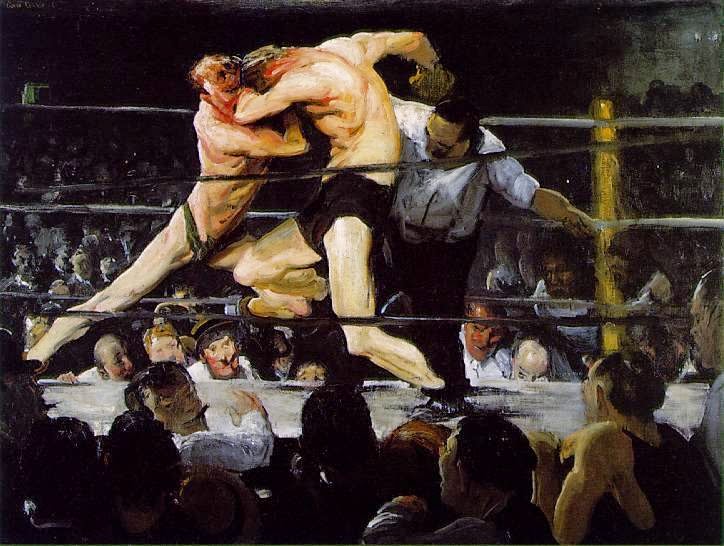Thursday, May 28, 2015
Wednesday, May 6, 2015
Keep Your Eyes on the Prize
What do prizes have to do with sci fi? Oh, there are the Hugos and the Nebulas and such and those are marvelous stimulants for our imagination, but I'm not thinking specifically of literary prizes.
Then there was the government's prize for the development of supply rockets for the ISS that led to the emergence of SpaceX and Orbital Sciences as private entities for space transport. This was an unqualified success, and we will return to it later.
In the larger world of prizes, though, several factors make us wonder about their effectiveness, at least in the present context. Consider the prize of prizes, the Nobel. Regardless of the enormous prestige and undeniable financial comfort that results from receiving the prize, does it really serve as a stimulant for achievement? The instance of President Obama's peace prize gives pause for thought. He was awarded it for calling an end to conflicts in Iraq and Afghanistan, but neither has ended. Despite our having our way in running those countries through Western-approved (if not installed) regimes, the fighting, the bombings, and the recruitment of further militants rages on. Other Peace Prize recipients have been so fortunate as to be murdered shortly afterward by their own countrymen. Of course, these may be exceptions, but they are noteworthy ones. The Nobel is awarded to many great scientific researchers, as well. Usually it comes relatively late in their careers, as a crowning achievement to their initiatives and sacrifices. Was it really necessary, or even instrumental in producing those results? Probably not. Those men and women would have forged ahead in their crusades without the carrot of the Nobel being held before their noses. There is still a common value in recognition, whether or not it is a stimulus as well.
Much the same can perhaps be said if we step down a notch to the so-called MacArthur "Genius Grants." These five-year fellowships have been awarded for decades to promising individuals in a surprising number of fields. According to the foundation's own guidelines, they are not necessarily directed to a single designated outcome, such as the design of a building, the writing of a book, or the establishment of a particular institution. I have always been interested in hearing a sort of longitudinal report on what happens to the recipients after they receive the awards. A nagging doubt makes he wonder if any wound up the worse off for the honor, like the "lucky" individuals on the old television show, "The Millionaire," who frequently crashed soon after their success. To hope that the awardees would go on to live full and happy lives would certainly be a desirable outcome for these worthies. Yet, the question remains: in terms of strict effect, what do the awards do?
So often in our society, prizes seem essentially "rigged" beforehand. Reading the astonishing variety of reactions to the recent Wayweather-Pacquiao championship boxing match, it seems that many fans are disappointed. Commentators cite the fact that the "take" was already largely calculated before the match began, assuring that both fighters would be so wealthy that the decision would not have much influence on their subsequent lifestyles. Many fans felt that one or both of the fighters was just going through the motions and failing to deliver a performance worthy of the high price. I would take exception to this, since anyone who has spent even one round in the ring with a trained boxer knows that it can be an experience so grueling that questions of dollars rapidly fade from relevance. Could a bigger purse, a super-prize, have made them produce what some of the fans wanted? Perhaps a better question is: might not such a super-prize have been more meaningful if both men had been able to confront each other at the height of their abilities, rather than late in careers that the boxers were making superhuman efforts to maintain and extend, knowing that they were a step behind, a punch slower, than they once were.
This brings up the fundamental question -- and here we jump back into the future -- of what we really want to use prizes for. What are the collective goals? Are great journeys one of them? Can a great journey into our solar system be one? Jules Verne's Phileas Fogg, in Around the World in Eighty Days, sets out on his adventure to win a bet that was essentially a financial prize. Henry Stanley crossed Africa in pursuit of Doctor Livingstone, motivated by a prize in the form of a commission. Both were effective in producing desired results, despite hardship. Both involved considerable risk, as did the ventures of SpaceX and Orbital Sciences. Elon Musk, father of SpaceX, sees the colonization of Mars much in terms of a prize objective, one the company is already planning for before a prize is offered. Will he, will we, be willing to go all fifteen rounds until the final bell sounds? Do we really want to? These are questions waiting for answers.
Subscribe to:
Comments (Atom)




